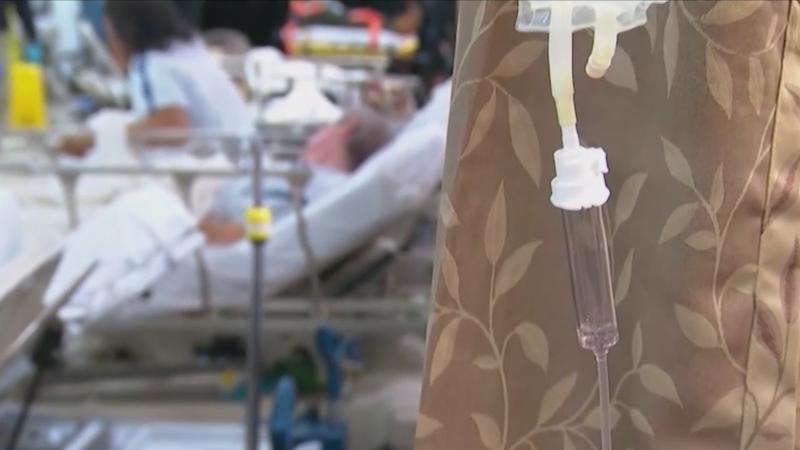‘Our ability to safely care for people is being threatened’: Hospital CEOs talk frankly about crisis
[anvplayer video=”5079608″ station=”998131″]
CANANDAIGUA, N.Y. (WHEC) — Our local health care system is in crisis and it’s not just the big hospitals. Rural hospitals across the Finger Lakes Region are so full, they’ve had to turn away patients on a number of occasions over the past few weeks. Hospitals that haven’t gone on diversion in years have had to close their doors for hours at a time in an effort to catch up with crushing demand.
News10NBC Investigative Reporter Jennifer Lewke spoke with the CEOs of Thompson Health in Canandaigua, Geneva General and Clifton Springs Hospital on Wednesday to get a frank and honest idea of what is happening inside.
Michael Stapleton/CEO, Thompson Health – At one point last week our emergency room which is built for 24 people, had 44 people in it. We had 19 patients waiting for inpatient beds including four ICU patients. We have 14 ICU patients, our ICU is built for 12, 10 of those patients are COVID related and all 10 are unvaccinated.
Dr. Jason Feinberg/VP of Medical Affairs, Geneva Hospital – We are taking care of intensive care patients on drips and ventilated in the emergency room for prolonged periods of time and that is not the right environment nobody wants to do that.
Mr. Stapleton – We are petrified about the upcoming flu season, we were very fortunate last year to not have a flu season and the data that came out last week–New York State has already surpassed the total number of positive flu cases than we experienced in all of last year. If we have a significant flu season we will be brought to our knees. When we called the New York State Department of Health surge and flex line (last week), the closest available ICU bed was an Orange County… that is the situation we are dealing with every single day.

[News10NBC]
Jennifer Lewke – How often are you calling that line and how often are you getting beds that are hundreds of miles away?
Mr. Stapleton – So, every time we go on diversion we have to call that line to basically get permission to go on diversion. We say we need ICU beds and they’re like well, who have you called. I said we’ve called every hospital in Buffalo, we’ve called every hospital in Syracuse, we’ve called every hospital in Rochester and we called down to Pennsylvania and nobody has critical care beds, where is the closest bed? And then we’ve got to go into a room and tell a family whose loved one just had a stroke that we’re going to transfer your family member 250 miles away… that’s not OK.
Dr. Feinberg – We actually were down to one ventilator left in our facility, with people that were likely going to need ventilators and so, we went to diversion to establish enough time to borrow three from the University of Rochester so, that’s how critical things are.
Dr. Dustin Riccio/President, Eastern Region of RRH – The heart attacks that are going to come through that are going to be difficult to care for, the strokes that we need to care for on a daily basis, the traumas, the bumps and bruises that’s all on the line. In the prior five years at this job just to put it in perspective, we have not been on diversion ever in Clifton Springs over the last several weeks we’ve diverted a few different times.
Mr. Stapleton – We can still safely care for our community but that is being threatened plain and simple and if things don’t change our ability to safely care for our community is going to be under an enormous threat.
If it’s a matter of life or death, any hospital has to take you, even if it is on diversion. When it comes to ventilator capacity, if a hospital is getting low, News10NBC is told they can call the state’s surge and flex line and the state can typically get them more ventilators within 24 hours.